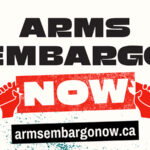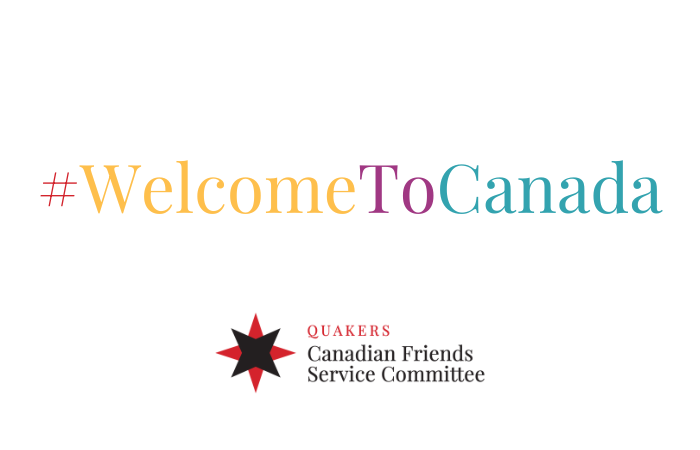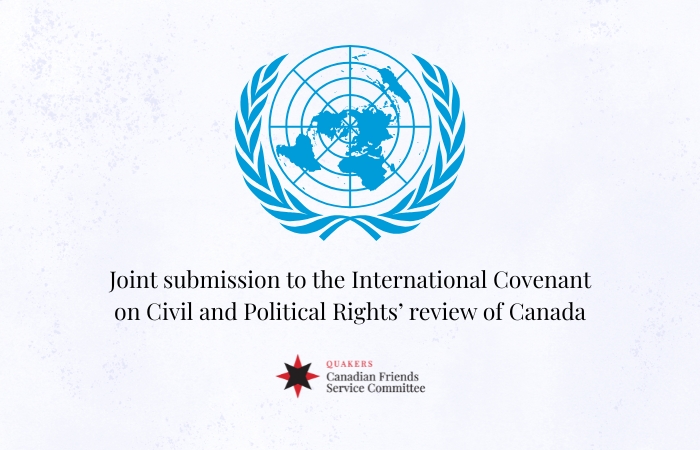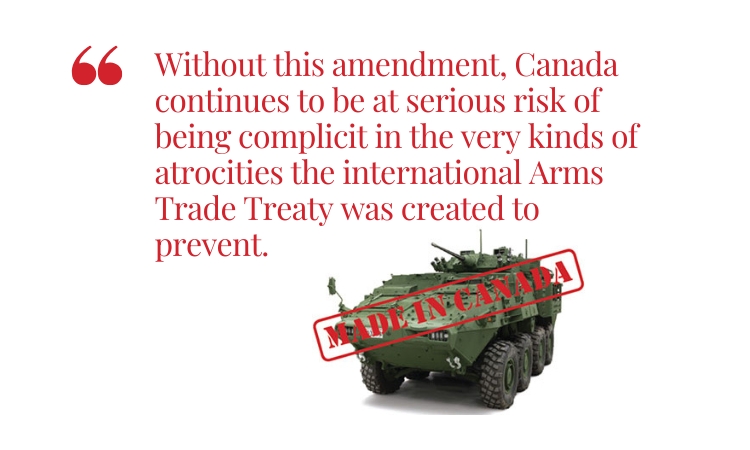
Joint statement calls on Canada to immediately suspend all trade in arms and military technology with Israel
May 7, 2024
Canadians in prisons need access to the internet to take online courses, get informed about support programs
May 25, 2024
![]() We are leading Canadian and international organizations serving and working to protect the human rights of migrants and refugee claimants, as well as the thousands of individuals who are already incarcerated across Canada. We are writing to oppose the federal government’s Budget 2024 plans to expand immigration detention into federal prisons, through proposed amendments to the Immigration and Refugee Protection Act and the Corrections and Conditional Release Act.
We are leading Canadian and international organizations serving and working to protect the human rights of migrants and refugee claimants, as well as the thousands of individuals who are already incarcerated across Canada. We are writing to oppose the federal government’s Budget 2024 plans to expand immigration detention into federal prisons, through proposed amendments to the Immigration and Refugee Protection Act and the Corrections and Conditional Release Act.
As of May 2024, all ten provinces have decided to end their immigration detention agreements or arrangements with the Canada Border Services Agency (CBSA). As these decisions take effect, people will no longer be incarcerated in provincial jails based solely on immigration grounds. In severing their detention contracts with CBSA, the provinces have clearly indicated their firm opposition to the use of provincial jails for immigration detention. As Alberta’s public safety minister, Mike Ellis, stated in January 2023, “People who come to Canada for a fresh start and a new life deserve a better welcome than a jail cell while paperwork is sorted out.”
In response to Budget 2024’s proposal to expand immigration detention into federal prisons, the Bloc Québécois appealed to the federal government’s “humanity,” stating: “At a time when Canada prides itself on being a welcoming land open to immigrants, locking up immigrants in penitentiary institutions, with no respect for human rights, is nonsense.”
Using federal prisons to incarcerate people in immigration detention is inherently punitive and inconsistent with international human rights standards.
We are deeply concerned by Immigration Minister Marc Miller’s assertion that prisons would be used for “a very small segment of the population,” which he described as “not criminals,” but “high-risk” and often with “severe mental health problems.” In fact, the data from medical literature and research is clear that immigration detention can exacerbate and trigger mental health conditions, particularly when incarceration is prolonged and without end in sight. People in immigration detention can develop anxiety, depression, despair, psychological distress, psychosis, catatonic withdrawal, self-harm and suicidal ideation. The mental-health impacts of immigration detention are so severe that even a relatively short hold in detention can be devastating to the mind and cause long-term – and sometimes permanent – harm.
Over the past several years, CBSA has detained tens of thousands of non-Canadian citizens under the Immigration and Refugee Protection Act, most commonly because authorities believe they may not appear for an immigration or refugee proceeding. People in immigration detention include, among others, refugee claimants fleeing traumatic experiences and persecution, and persons with mental health conditions. The conditions that people in immigration detention face are profoundly disturbing.
Since 2000, at least 17 people lost their lives in immigration detention; most of them were incarcerated in a jail. Evidence presented at the February 2023 coroner’s inquest into the death of Abdurahman Hassan, a man arbitrarily detained for three years while CBSA was unable to deport him to Somalia, revealed shocking details about ongoing conditions of incarceration in provincial jails, including prolonged use of solitary confinement. The inquest jury’s first recommendation to the Government of Canada and the Government of Ontario was to end the use of jails for immigration detention.
We call on the federal government to immediately cancel its plans to use prisons for immigration detention. Instead, it should invest in community-based organizations that provide tailored and compassionate support independently of CBSA, including rights-respecting alternatives to detention, and ultimately end immigration detention across the country.
Signatories:
1. 7th Step Society of Canada
2. Action Réfugiés Montréal
3. Alberta Prison Justice Society
4. Amnesty International Canadian Section (English-Speaking)
5. Amnistie internationale Canada francophone
6. Angela Rose and Oak House
7. Association des avocats.es carcéralistes du Québec (AACQ)
8. Association Québécoise des avocats et avocates en droit de l’immigration (AQAADI)
9. BC Poverty Reduction Coalition
10. BIPOC USHR
11. Black Legal Action Centre
12. Book Clubs for Inmates
13. British Columbia Civil Liberties Association
14. Canadian Association of Elizabeth Fry Societies (CAEFS)
15. Canadian Association of Refugee Lawyers (CARL)
16. Canadian Bar Association, Immigration Law Section
17. Canadian Centre for Victims of Torture
18. Canadian Civil Liberties Association (CCLA)
19. Canadian Council for Refugees (CCR)
20. Catholic Crosscultural Services
21. Centre for Justice Exchange
22. Centre for Refugee Children
23. Centre for Spanish Speaking Peoples
24. Circles of Support and Accountability (CoSA) Canada
25. Citizens for Public Justice
26. Colour of Poverty – Colour of Change
27. Community & Legal Aid Services Program (CLASP)
28. Community Family Services of Ontario
29. Community Legal Assistance Society (CLAS)
30. Community Legal Services of Ottawa
31. Compass Refugee Centre
32. Downtown Legal Services, University of Toronto’s Faculty of Law
33. East Coast Prison Justice Society
34. Edelmann & Company Law Offices
35. Family Service Toronto
36. FCJ Refugee Centre
37. Foyer du Monde
38. Global Detention Project
39. Halifax Refugee Clinic
40. HIV & AIDS Legal Clinic Ontario (HALCO)
41. HIV Legal Network
42. Human Rights Watch
43. Immigration and Refugee Legal Clinic
44. Inter-Clinic Immigration Working Group
45. International Justice & Human Rights Clinic, Peter A. Allard School of Law, University of British Columbia1
46. Kinbrace Community Society
47. L’Association des services de réhabilitation sociale du Québec
48. La Clinique pour la justice migrante / Migrant Justice Clinic
49. Landings
50. Ligue des Droits et Libertés
51. Madhu Verma Migrant Justice Centre
52. Matthew House Refugee Services Toronto
53. Matthew House Refugee Welcome Centre, Windsor
54. Mennonite Central Committee Canada
55. Micah House Refugee Reception Services
56. Migrant Detainee Support Coalition (MIDESUCO)
57. Migrant Rights Network
58. Migrant Workers Alliance for Change
59. Migrant Workers Centre
60. Multi-Agency Partnership of BC (MAP BC)
61. New Brunswick Refugee Clinic
62. Newcomer Legal Clinic – Lakehead University
63. OCASI – Ontario Council of Agencies Serving Immigrants
64. Prisoners’ Legal Services
65. Queen’s Prison Law Clinic
66. Rainbow Refugee
67. Refugee 613
68. Settlement Assistance and Family Support Services
69. South Asian Legal Clinic of Ontario (SALCO)
70. SWAN Vancouver
71. Table de concertation des organismes au service des personnes réfugiées et immigrantes
72. The Canadian Centre to End Human Trafficking
73. Canadian Friends Service Committee (Quakers)
74. The Canadian Prison Law Association
75. The National Associations Active in Criminal Justice
76. The Peoples Church
77. The Refugee Centre / Le Centre de réfugiés
78. The St. Leonard’s Society of Canada
79. United for Literacy
80. Vancouver Association for Survivors of Torture (VAST)
81. Welcome Collective // Collectif Bienvenue
82. West Coast LEAF Association
83. World Education Services
84. Youth Association for Academics, Athletics and Character Education (Y.A.A.A.C.E.)
85. YWCA Toronto
Download this open letter in PDF.
Consider taking action via Amnesty International Canada’s campaign page.
Learn more about CFSC’s transformative justice work. Learn more about our support for refugees.




